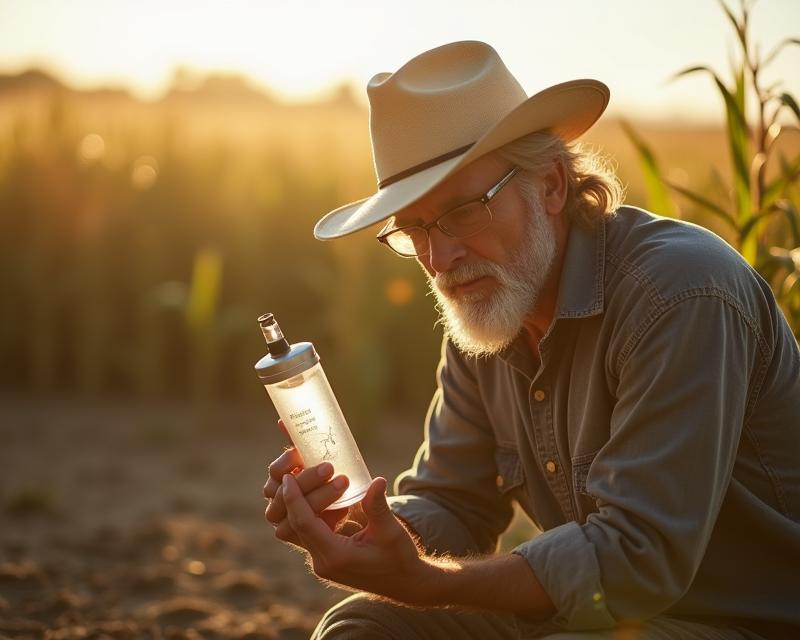Water Quality: Key to a Healthy Farm
Publish in Sustainable Farming el 21/07/2025 00:48
Water Quality: Key to a Healthy Farm
Water is the lifeblood of any farm, garden, or ranch. From irrigating crops to providing drinking water for livestock, access to clean, healthy water is absolutely essential for success. But are you sure the water you're using is truly good for your operation? Understanding water quality is a crucial step towards sustainable farming practices and protecting your investments.

Why Does Water Quality Matter?
Poor water quality can have a wide range of negative impacts. It can affect crop yields, reduce livestock health, and even contaminate your soil. Contaminants like excessive salts, heavy metals, pesticides, and bacteria can all wreak havoc on your farm. For example, high levels of sodium can make soil difficult to work and negatively impact plant growth. Similarly, certain metals can accumulate in crops, posing risks to human and animal health. Furthermore, contaminated water can lead to disease outbreaks in livestock and reduce the overall quality of your produce.
Assessing Your Water
The first step is to understand your water source. Is it well water, surface water (like a river or lake), or municipal water? Each source has its own potential issues. Regular testing is vital. You can get your water tested by a certified laboratory. Common tests include checking for pH levels, salinity (total dissolved solids or TDS), nitrate levels, and the presence of bacteria like E. coli. Many local agricultural extension offices offer affordable testing services and can guide you on what tests are most relevant for your farm. Don't hesitate to reach out to them!
Improving Water Quality
Once you know your water quality, you can take steps to improve it. For irrigation, consider using efficient irrigation methods like drip irrigation to minimize water waste and reduce the risk of runoff. For livestock, ensure your water troughs are regularly cleaned and maintained. If your water is high in salts, explore options like leaching (applying excess water to flush out salts) or using alternative water sources. Implementing buffer zones along waterways can help filter pollutants before they reach your water source. Finally, consider rainwater harvesting as a supplementary water source. By proactively managing your water quality, you're investing in the long-term health and productivity of your farm.





